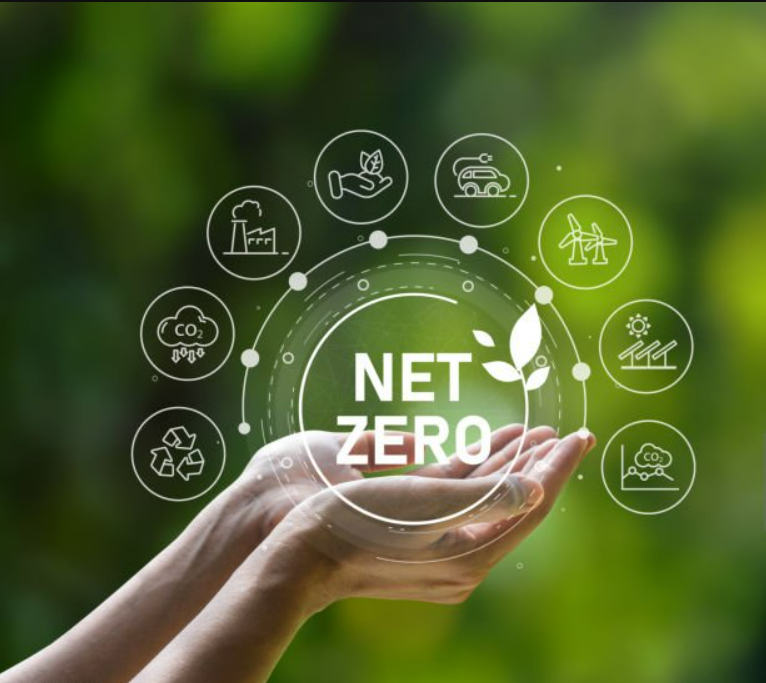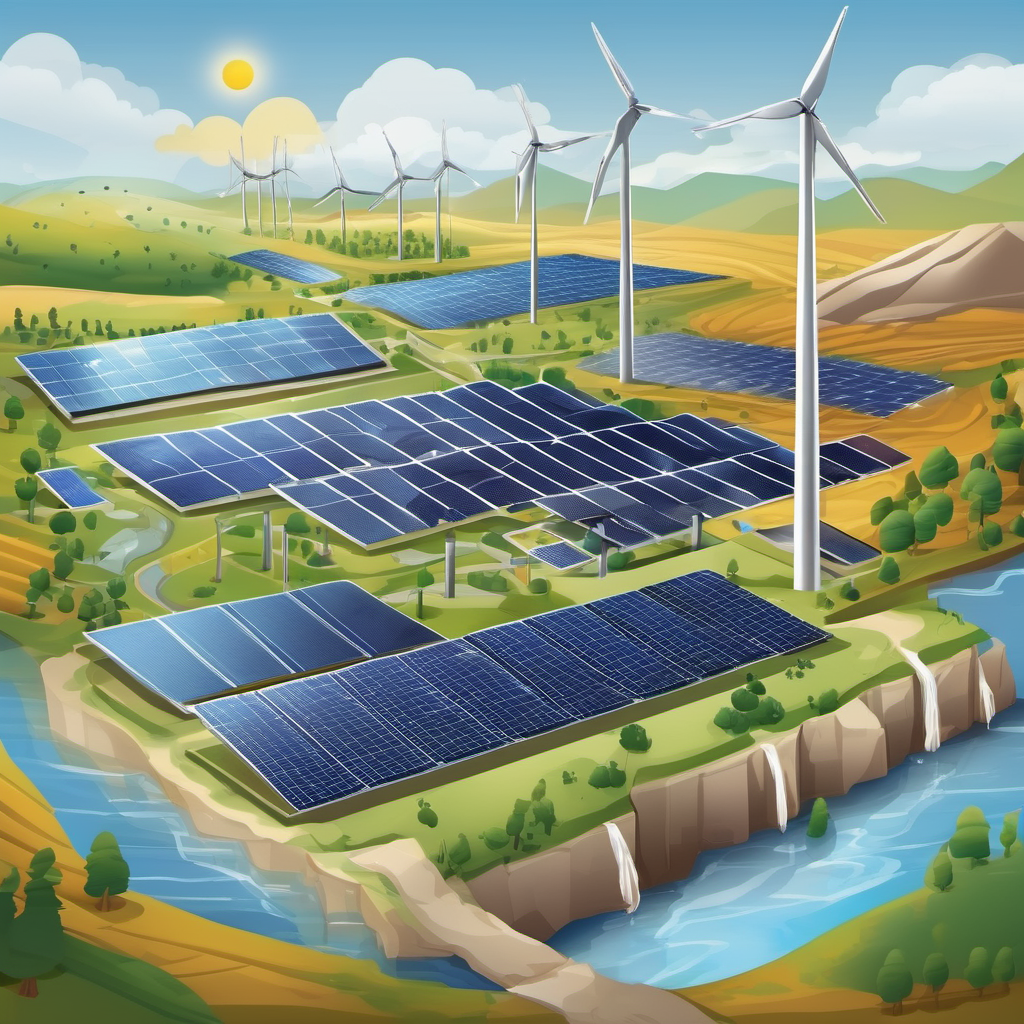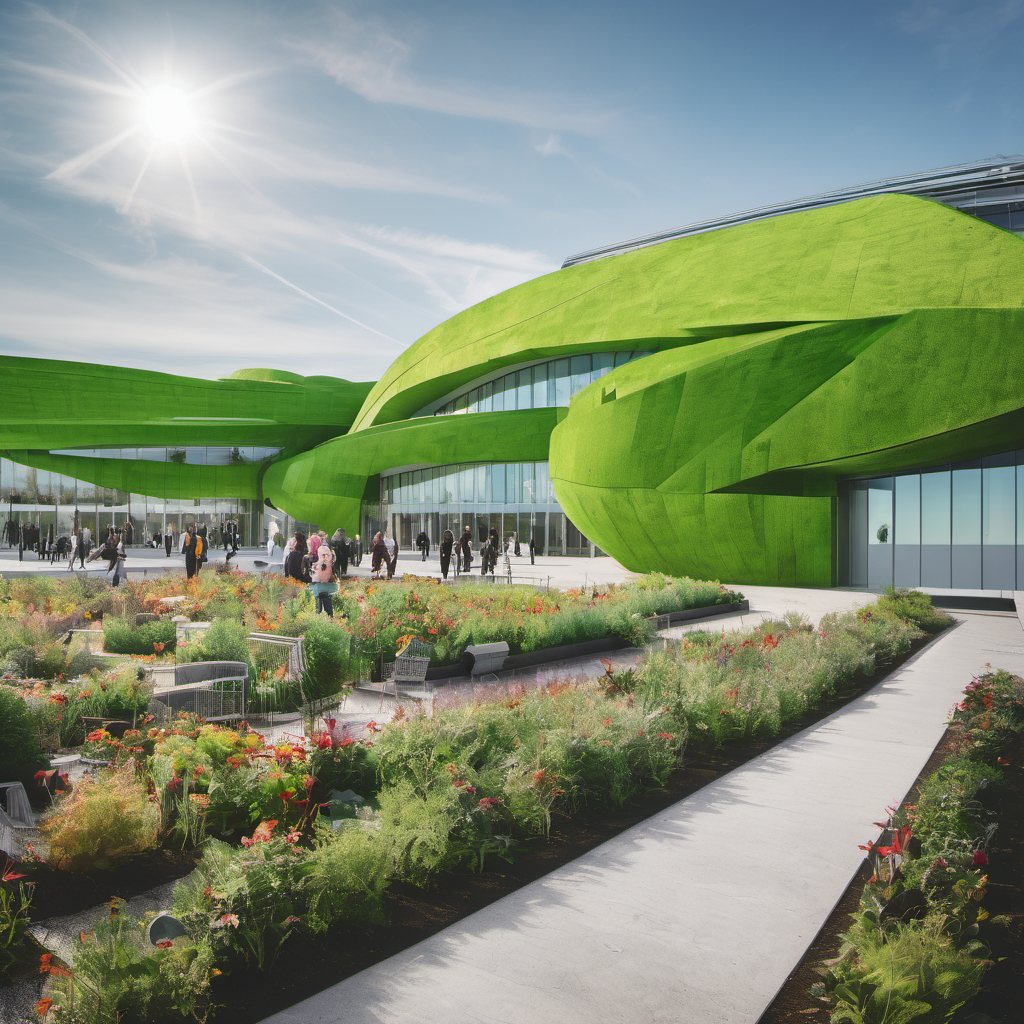In the face of escalating climate change and environmental degradation, citizens across Europe have emerged as powerful agents of change, poised to drive the ambitious goals set forth by the European Green Deal. With a steadfast commitment to achieving net-zero emissions by 2050 and fostering inclusive growth, “Empowering Citizens for Decarbonization” presents a beacon of hope in a post-pandemic world.
As the world grapples with existential threats, the European Union’s visionary plan aims to transform economies into resilient, resource-efficient powerhouses. Here’s how civil citizens can step up to the challenge, turning aspirations into action and paving the way towards a sustainable future for all.
Climate change and environmental degration
Climate change and environmental degradation pose significant threats to Europe, US and the global community. To address these challenges in Europe, the European Green Deal aims to revolutionize the EU’s economy, making it more modern, resource-efficient, and competitive.
Achieving Key Objectives
This initiative pledges to achieve several key objectives:
- Eliminating net greenhouse gas emissions by 2050
- Decoupling economic growth from resource consumption
- Ensuring no individual or region is left behind in the transition
The European Green Deal serves as a crucial pathway out of the COVID-19 pandemic, with a substantial portion of funding from the
- “NextGenerationEU Recovery Plan” and
- the EU’s seven-year budget allocated to its implementation.
Proposals
In line with these goals, the European Commission has put forward a series of proposals to align the EU’s
- climate,
- energy,
- transport, and
- taxation policies.
These proposals aim to slash net greenhouse gas emissions by at least 55% by 2030, compared to 1990 levels. This concerted effort underscores the EU’s commitment to delivering on the promises of the European Green Deal.
Why decarbonization is important?
Reduction/Elimination the CO2 emissions
Decarbonization refers to the process of reducing or eliminating the carbon dioxide (CO2) emissions produced by human activities, particularly those related to burning fossil fuels e.g.: coal, oil, and natural gas.
This process is crucial in combating climate change because CO2 is a major greenhouse gas responsible for trapping heat in the Earth’s atmosphere, leading to global warming and associated environmental impacts.
What does “trapping heat” means?
Imagine the Earth wearing a big blanket made of a gas called CO2. This blanket keeps getting thicker, making the Earth warmer and causing lots of problems like melting ice and crazy weather.
Decarbonization
Decarbonization involves transitioning to cleaner and more sustainable energy sources, for instance renewable energy (e.g., solar, wind, hydroelectric, and geothermal), which produce little to no CO2 emissions during electricity generation.
Additionally, decarbonization efforts include
- improving energy efficiency,
- promoting electrification of transportation and heating systems,
- implementing carbon capture and storage (CCS) technology, and
- enhancing carbon sinks such as forests and wetlands.
Overall, decarbonization aims to achieve a significant reduction in CO2 emissions to
- mitigate climate change and
- transition toward a low-carbon or carbon-neutral economy,
where the amount of CO2 emitted is balanced by removal or offsetting measures.
Decarbonization and the European Green Deal Strategy
Decarbonization serves as the linchpin of the European Green Deal, a comprehensive framework designed to combat climate change, foster sustainability, and spur economic growth within the European Union.
Interconnected Goals
Net-Zero Emissions
At its core, the European Green Deal sets the ambitious target of reaching net-zero greenhouse gas emissions by 2050. This objective underpins a multifaceted approach to transitioning the EU economy towards a more sustainable and resilient model.

By prioritizing decarbonization, the European Green Deal aims to achieve several interconnected goals.
Economic Transformation of key sectors
Firstly, it seeks to drive the transformation of key sectors e.g.:
- energy,
- industry,
- transportation, and
- buildings,
away from carbon-intensive practices and towards cleaner alternatives.
This transition is essential not only for mitigating the impacts of climate change but also for reducing dependence on finite fossil fuel resources.
Reshaping economic landscapes
Moreover, decarbonization efforts are integral to reshaping the economic landscape of the EU.
By decoupling economic growth from resource consumption and environmental degradation, the European Green Deal aims to
- foster innovation,
- promote the adoption of sustainable technology, and
- create new opportunities for green investment and job creation.
This approach is seen as vital for ensuring long-term prosperity while safeguarding the planet for future generations.
The principle of inclusive growth
Furthermore, the European Green Deal emphasizes the principle of inclusive growth, whereby no person or region is left behind in the transition to a low-carbon economy.
New jobs and opportunities
This entails
- supporting vulnerable communities,
- providing retraining opportunities for workers in carbon-intensive industries,
- tranforming cities’ economies which were based on carbon-intensive industries (several Western and Eastern European towns/cities created because of coal mining and other carbon-intensive industries),
- supporting citizens of back-then carbon-intensive towns and cities with enough new job opportunities while the educational and economic transformation happens, in this way the retention of highly educated workforce is possible on the long-run,
- promoting social equity throughout the process of decarbonization.
Recovery from COVID-19
Lastly, decarbonization plays a crucial role in the EU’s recovery from the COVID-19 pandemic.
With a significant portion of funding from the “NextGenerationEU Recovery Plan” and the EU’s budget allocated to green initiatives, the European Green Deal serves as a cornerstone of the EU’s post-pandemic recovery strategy.
By investing in decarbonization projects, the EU aims to
- stimulate economic growth,
- create sustainable employment opportunities, and
- build resilience against future crises.
In summary, decarbonization is not only a key component of the European Green Deal but a fundamental driver of efforts to
- address climate change,
- promote sustainable development, and
- build a greener, more prosperous future for Europe and its citizens.
Empowering Citizens: Driving Decarbonization with the European Green Deal
To help with decarbonization and support the above mentioned goals, which were outlined in the European Green Deal, civil citizens can take several actions:
Reduce Energy Consumption
Citizens can decrease their energy usage by adopting energy-efficient practices at home and in their daily lives. This includes using energy-efficient appliances, turning off lights and electronics when not in use, and improving home insulation.
Transition to Renewable Energy
Individuals support renewable energy by
- installing solar panels on their homes,
- purchasing renewable energy from their utility providers, or
- investing in community renewable energy projects.

Shift Transportation Habits
Citizens can reduce their carbon footprint by using
- public transportation,
- carpooling,
- biking, or
- walking instead of relying solely on personal vehicles.
Additionally, transitioning to electric vehicles or supporting policies that encourage the adoption of electric vehicles help decrease emissions from transportation.
Promote Sustainable Consumption
Encouraging sustainable consumption practices for example
- reducing meat consumption,
- buying locally produced goods, and
- avoiding single-use plastics
can help decrease emissions and resource consumption.
Advocate for Policy Changes
Civil citizens advocate for policies that support decarbonization, for example
- carbon pricing,
- renewable energy incentives, and
- regulations that promote energy efficiency and
- sustainability.
Next to this creating workplaces locally to be able to stay where they want to be, and have options to achieve competitive salaries without the need to leave their own homes or countries.
Support Green Initiatives
Supporting and participating in community-led initiatives focused on
- environmental conservation,
- reforestation, waste reduction, and
- clean energy can contribute to decarbonization efforts at the local level.
Educate and Raise Awareness
Educating oneself and others about the importance of decarbonization, climate change, and environmental sustainability help build public support for initiatives aimed at reducing emissions and mitigating climate change.
Engage in Sustainable Practices
Adopting sustainable practices e.g.: composting, recycling, reducing waste, and conserving water contribute to overall efforts to
- reduce carbon emissions and
- promote environmental sustainability.
By taking these actions, civil citizens can play a significant role
- in supporting decarbonization efforts and
- achieving the goals outlined in the European Green Deal.
Local goods and services, education, and work
Buy and work locally
Encouraging individuals to buy and work locally can have profound socio-economic benefits, fostering vibrant communities and providing opportunities for fulfilling careers with competitive salaries.
When consumers prioritize locally produced goods and services, they contribute to the prosperity of their communities by
- supporting small businesses and
- local entrepreneurs, many of which offer well-paying jobs.
By embracing local employment opportunities, individuals can find
- meaningful work close to home,
- enjoying the benefits of a steady income and
- professional growth without the need to relocate for better prospects.
This approach not only strengthens social ties and family bonds but ensures that individuals thrive financially while remaining connected to their roots.
Embracing a local-first mindset offers the opportunity for both economic prosperity and personal fulfillment, empowering individuals to build rewarding careers without sacrificing their ties to their families and communities.
The importance of opportunity and flexibility – jobs & education
However, it’s essential to recognize the importance of providing individuals with the opportunity to pursue education and skill development at a high level.
This ensures that they have the flexibility to choose whether to work locally or internationally, empowering them to seek career opportunities that align with their aspirations.
By investing in education and promoting lifelong learning.

Societies can equip individuals with the knowledge and skills needed to thrive in a globalized world, by having their strong family and community ties if they want to have and next to this having internationally competitive salaries by working locally or remote, which can compete internaitonally while fostering strong local economies and communities.
Green Investment: Driving Local Job Creation and Sustainability
Green investment opportunities hold immense potential for creating jobs locally while advancing sustainability goals.
By directing funds towards renewable energy projects, energy-efficient infrastructure, and environmental conservation initiatives, communities can harness the dual benefits of economic growth and environmental stewardship.
These investments not only create employment opportunities in sectors e.g.: in renewable energy installation, green construction, and environmental restoration but contribute to building resilient and sustainable economies.
Embracing green investment opportunities is not only a strategic economic choice but a crucial step towards ensuring a greener, more prosperous future for local communities and the planet as a whole.
Conclusion
In response to the pressing challenges of climate change, citizens across Europe are empowered to drive decarbonization efforts outlined in the European Green Deal. This ambitious plan aims to achieve net-zero emissions by 2050, foster economic transformation, and ensure inclusive growth.
Decarbonization lies at the heart of this endeavor, emphasizing the need for transitioning to cleaner energy sources, promoting sustainable practices, and investing in green technologies.
By prioritizing decarbonization, citizens contribute to a sustainable future, where economies, communities and families are resilient, resource-efficient, and competitive.
Through collective action and a commitment to sustainability, Europe and the rest of the world can pave the way towards a greener, more prosperous future for all.
